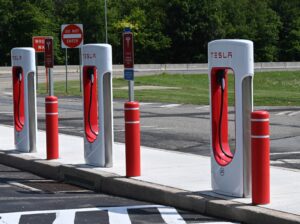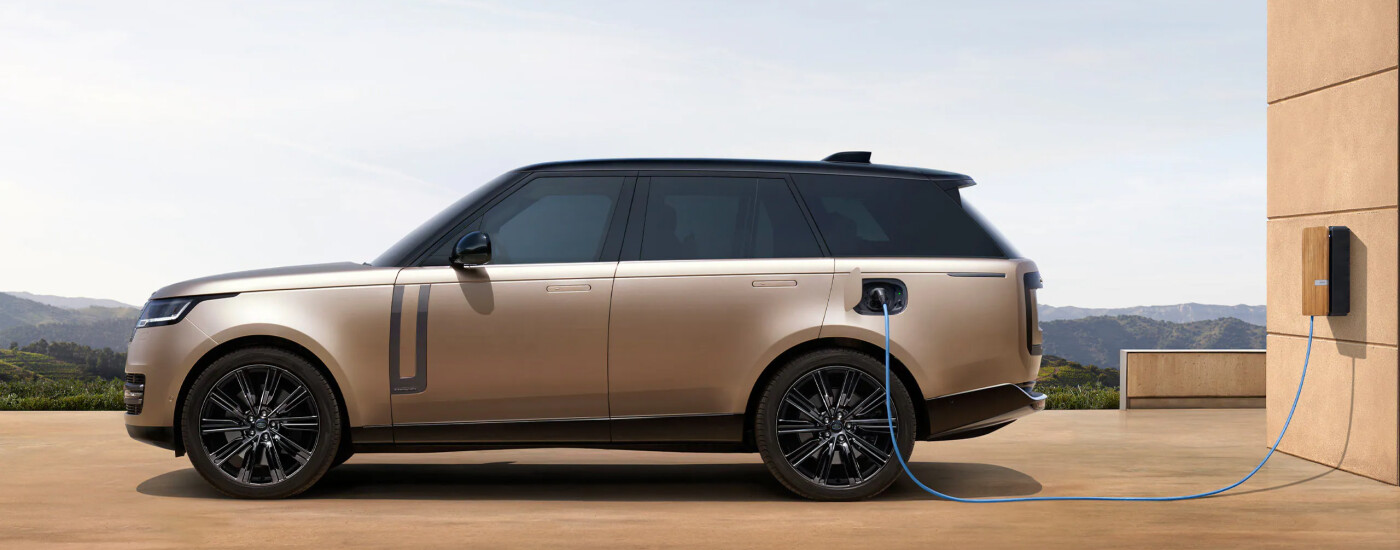 As technology continues to evolve, so does the way we live our lives. The future of smart homes and electric cars are the two trends that have gained momentum in recent years. At their core, smart homes are houses that are equipped with internet-connected devices and automation systems that allow residents to control various aspects of their homes remotely. Electric cars, on the other hand, are vehicles that run on electricity rather than fossil fuels. In this comprehensive overview, we will explore the past, present, and future of smart homes and electric cars, their integration, and the barriers to their adoption.
As technology continues to evolve, so does the way we live our lives. The future of smart homes and electric cars are the two trends that have gained momentum in recent years. At their core, smart homes are houses that are equipped with internet-connected devices and automation systems that allow residents to control various aspects of their homes remotely. Electric cars, on the other hand, are vehicles that run on electricity rather than fossil fuels. In this comprehensive overview, we will explore the past, present, and future of smart homes and electric cars, their integration, and the barriers to their adoption.
Smart Homes: Trends and Innovations
- Voice assistants and home automation: One of the biggest trends in smart homes is the use of voice assistants such as Amazon’s Alexa, Google Assistant, and Apple’s Siri. Voice assistants allow residents to
 control their homes using voice commands, making it easier and more convenient to manage their everyday lives. Home automation is another trend that has gained popularity in smart homes. It allows residents to set schedules for their appliances, lighting, and temperature controls. For example, a resident can program their thermostat to adjust the temperature at certain times of the day to save energy.
control their homes using voice commands, making it easier and more convenient to manage their everyday lives. Home automation is another trend that has gained popularity in smart homes. It allows residents to set schedules for their appliances, lighting, and temperature controls. For example, a resident can program their thermostat to adjust the temperature at certain times of the day to save energy. - Smart devices and appliances: Smart devices and appliances are another trend in smart homes. These include smart refrigerators, washing machines, and other appliances that can be controlled remotely. These devices can communicate with each other and share data to provide users with more information about their homes. For example, a refrigerator can notify an owner when they run out of a particular food item and automatically order it online.
- Energy efficiency and sustainability: Many smart homes are designed to be energy-efficient and sustainable. They use renewable energy sources such as solar panels and wind turbines to generate electricity. Additionally, smart homes can adjust lighting, heating, and cooling systems automatically to conserve energy.
- Security and privacy concerns: As homes become more technologically advanced, there are growing concerns about security and privacy. Smart homes can be vulnerable to hacking and cyber attacks, so it is essential to have measures in place to protect them. Many smart devices and appliances also collect data about their users, raising privacy concerns.
- Internet of Things (IoT) and 5G technology: Smart homes rely heavily on the Internet of Things (IoT) to communicate with devices and appliances. As more devices become connected to the internet, the need for faster and more reliable connections increases. This is where 5G technology comes in. 5G offers faster internet speeds and more bandwidth, making it possible to connect more devices and appliances in smart homes.
Electric Cars: Technology and Advancements
- How electric cars work and their benefits: Electric cars run on electricity stored in batteries on board the vehicle, rather than using gasoline or diesel as fuel. They offer several benefits, including lower
 operating costs, reduced emissions, and quiet operation.
operating costs, reduced emissions, and quiet operation. - Electric car models and manufacturers: Many major automakers such as Tesla, Chevrolet, and Nissan now offer electric car models. Some manufacturers specialize in electric vehicles, such as Tesla and Rivian.
- Charging infrastructure and stations: One of the biggest challenges for electric car owners is finding places to charge their vehicles. Electric vehicle charging stations are becoming more common, but they are still not as widespread as gas stations. The availability of charging stations can vary significantly by location.
- Autonomous driving and connected cars: As technology continues to advance, electric cars are becoming more autonomous. They can have features such as adaptive cruise control, lane departure warnings, and automatic braking assist. Connected cars can also communicate with each other, allowing for more efficient and safer driving.
- Battery technology and range: Battery technology has improved significantly in recent years, allowing electric cars to travel longer distances on a single charge. However, range anxiety is still a concern for many people who worry about running out of power on long drives.
Electric Cars and Smart Homes: Integration and Interdependence
- Smart grid and energy management systems: Electric vehicles and smart homes can work together to manage energy use more efficiently. Smart grids can coordinate between electric vehicles and the power grid to optimize energy usage during peak electricity demand periods.
- Vehicle-to-Home (V2H) and Vehicle-to-Grid (V2G) technology: V2H and V2G technologies allow electric vehicles to provide backup power to homes or feed electricity back into the power grid. This provides a way to store excess power generated by renewable sources and reduce the demand for fossil fuels.
- Home charging and renewable energy integration: Home charging stations for electric vehicles can be integrated with renewable energy sources such as solar panels, further reducing the reliance on fossil fuels.
- Electric car batteries as backup power sources: Electric car batteries can also be used as backup power sources for homes during power outages. This can provide critical power for medical equipment and other important devices.
Smart Homes and Electric Cars: Future Applications and Possibilities
- Smart cities and urban planning: Smart homes and electric cars can have significant implications for urban planning. Cities can use data from smart homes and electric vehicles to inform public policy and infrastructure development.
- Subscription-based models for smart homes and electric cars: Subscription-based models for smart homes and electric cars could make these technologies more accessible and affordable to a broader range of people.
- Shared mobility and ride-hailing services: Shared mobility and ride-hailing services using electric vehicles can reduce congestion and carbon emissions in cities.
- Smart homes as charging stations: Smart homes can be used as charging stations for electric cars, which can provide a convenient and accessible way to charge vehicles.
- Integration with public transportation: Smart homes and electric cars can be integrated with public transportation, allowing for more efficient and sustainable transportation options.
Barriers to Adoption and Possible Solutions
- High costs and affordability: The cost of smart homes and electric cars can be a barrier for many people. However, as technology continues to advance, prices are expected to decrease.
- Range anxiety and charging time: Range anxiety and charging time are still concerns for many electric car owners. However, advancements in battery technology and charging infrastructure are expected to help alleviate these concerns.
- Lack of infrastructure and government incentives: The lack of infrastructure, such as charging stations, can make it difficult to own and operate electric vehicles. Government incentives and funding can help promote the development of infrastructure for electric vehicles and smart homes.
- Limited consumer knowledge and awareness: Many people are still unfamiliar with the benefits and operation of smart homes and electric cars. Education and outreach programs can help raise awareness and promote adoption.
- Safety and cybersecurity concerns: There are growing concerns about the safety and cybersecurity of smart homes and electric vehicles. More research and development is needed to ensure that these technologies are safe and secure.
Conclusion
Smart homes and electric cars are rapidly evolving technologies that offer numerous benefits, including reduced energy consumption and environmental impact. As these technologies continue to develop and become more integrated, the possibilities for their application are virtually limitless. While there are still barriers to their adoption, the future of smart homes and electric cars looks promising.
Read More
10 Must-Have Smart Home Appliances for a Smarter Living Environment.
The Electric Revolution: Unveiling the Latest Innovations in Electric Cars
FAQs
What is a smart home?
A smart home is a residence equipped with internet-connected devices and automation systems that allow residents to control various aspects of their homes remotely.
What are the benefits of owning an electric car?
Electric cars offer several benefits, including lower operating costs, reduced emissions, and quiet operation.
How does V2G technology work?
V2G technology allows electric vehicles to provide backup power to homes or feed electricity back into the power grid.
What are the barriers to the adoption of smart homes and electric cars?
The barriers to adoption of smart homes and electric cars include high costs, range anxiety, lack of infrastructure, limited consumer knowledge and awareness, and safety and cybersecurity concerns.
Will smart homes and electric cars become more affordable in the future?
As technology continues to advance, prices for smart homes and electric cars are expected to decrease, potentially making them more affordable for a broader range of people.


